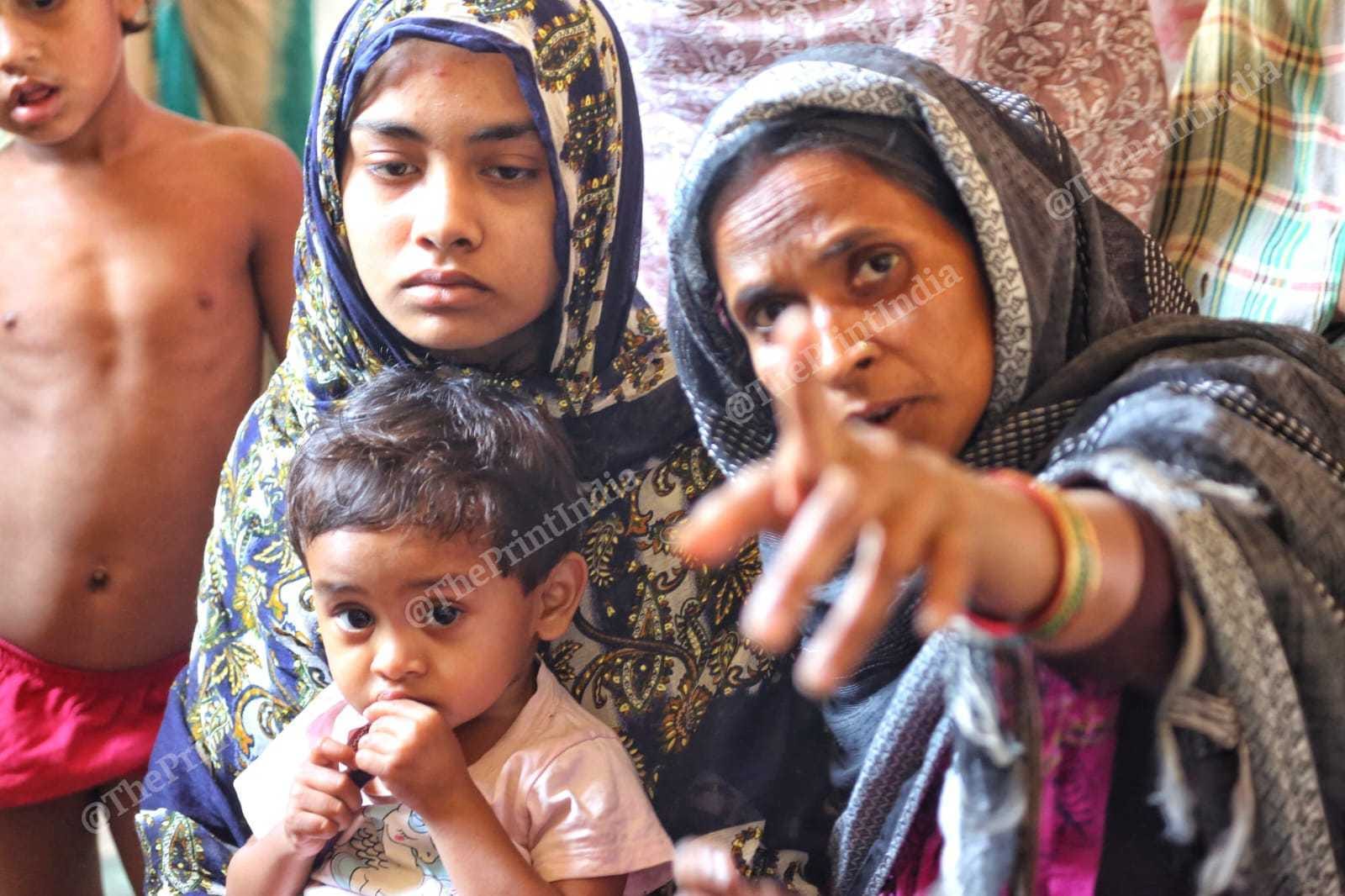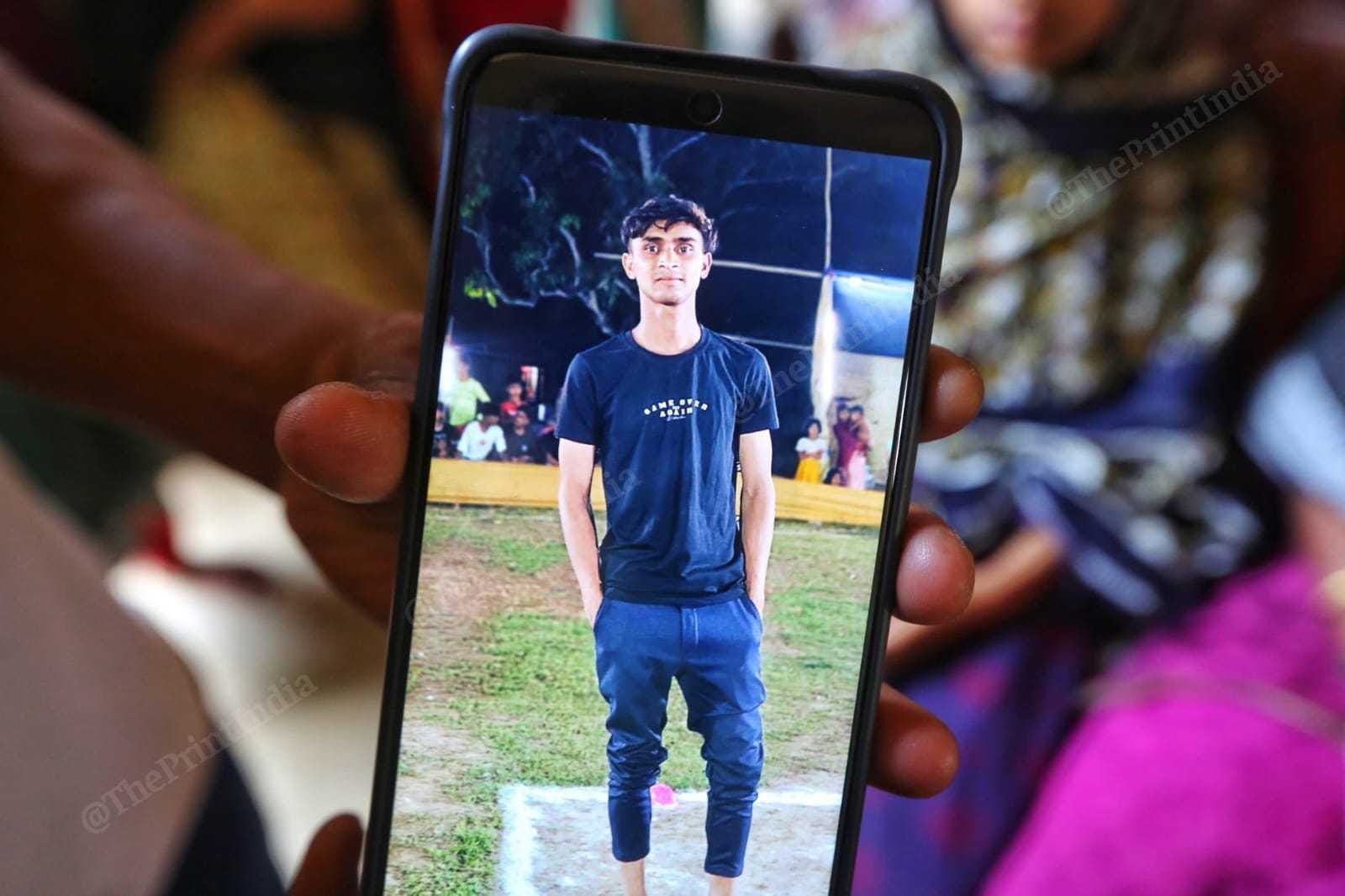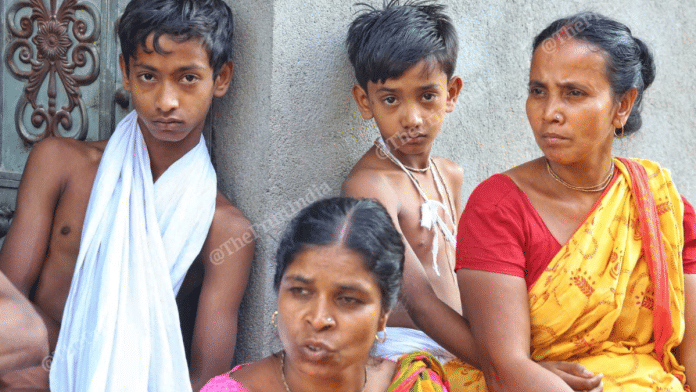Murshidabad: On the surface, the streets of Jafrabad in Shamsherganj—the epicentre of recent protests against the Waqf Act at Murshidabad in West Bengal—offer little trace of the violence that tore through the area last Friday and Saturday.
Municipal workers moved quickly to sweep away bricks, shattered glass, and the charred remains of vehicles. The administration erased the physical signs of arson that had pushed this district, nestled beside the fertile plains of the Ganga, to the brink on 11 April.
But one house still bears the scars. The ransacked two-storey home of Haragovind Das, 70, and his son Chandan Das, 40, remains a grim testament to the frenzy that engulfed Jafrabad town, where Muslims make up more than 93 percent of the population according to the 2011 Census.
“From 10 am on Saturday, for nearly two hours, they kept banging on the front gate and door. They were on a rampage across the area,” recalled Parul Das, Haragovind’s widow. “Eventually, they broke it down. My husband and son tried to hold them off, but they were dragged out and hacked to death.”
Broken pieces of bricks, furniture, and utensils lie strewn across the entrance and inner courtyard of the house. Just next to the Das household, a neighbour’s kitchen has been reduced to ashes.
Where the mob came from remains uncertain. “We don’t know,” said Vishwajeet Das, Haragovind’s son-in-law, who works as a mason. “They must have come from the Muslim paras (neighbourhoods) that surround this small Hindu settlement. But their faces were covered. We could only see their eyes.”
Ten kilometers away, in Kashimnagar, a predominantly Muslim neighborhood, another family mourns a death—also violent, also unexplained.

Ejaz Ahmed, 21, was described by his relatives and neighbours as the family’s sole breadwinner. His young wife, Salma Khatoon, sits in silence. His mother, Saima Bibi, struggles to understand how her son—who had planned to leave to rejoin work at a Chennai hotel just a day later—could have become a target.
“He was returning from his maternal uncle’s house on Friday,” the mother said. “We were told he was shot soon after stepping out of a vehicle near the highway junction at Shajur More on National Highway 34. In the hospital, before he passed away, he told me it was the police who fired.”
Saima Bibi was quick to add that Ejaz, and others in Kashimnagar, had stayed away from the Waqf protests, following the instructions of the local mosque’s imam, who had advised waiting for administrative approval before taking to the streets.
The family has neither received a post-mortem report, nor filed a police complaint.

Separated by distance and religion, the two families now share the same torment of unanswered questions. Who killed their loved ones? Why were they targeted? And why was the administration unable to anticipate or prevent the bloodshed?
In Jafrabad, neighbors of Haragovind and Chandan Das insist that the father and son, who ran a goat insemination business, had no political affiliations.
“We’re the kind of family whose only connection to politics is voting,” said Vishwajeet. “Yes, my father-in-law (Haragovind) was once active in the Left when they were in power. But after they lost, he never indulged in political activities.”
Inside the Das home, a white cap bearing the symbol of the Congress hangs from a rusted hook on an unplastered wall. Spotting it, Vishwajeet is quick to defuse any assumptions.
“One of the kids must have picked it up somewhere,” he said, glancing toward Akash and Kushal—Chandan’s sons, who study in Class 5 and Class 8—standing quietly nearby in white shrouds. “The younger one has been fainting frequently. He has not been able to process the events of the last two days,” said Vishwajeet.

While the West Bengal Police, along with personnel from the Central Armed Police Forces deployed following a Calcutta High Court order, patrol the streets, the area remains on edge. During the few hours that ThePrint team spent in Jafrabad on Sunday, there were two instances of security forces rushing into the lanes adjoining the Das household to disperse a mob that had approached the Hindu settlement.
Most shops, commercial establishments, schools and colleges remain shut. The locals remain anxious and fearful of fresh attacks. “How will we live like this? Many families have left the area and taken shelter with relatives in other districts or at temporary camps. What will happen to us when the forces and the media leave?” asked Gopal Das, a local.
Over the weekend, around 400 people from the violence-hit area fled and took shelter in a government school in the neighbouring Malda district. Additional Director General (Law and Order) Jawed Shamim told reporters on Sunday that around 19 families have since returned to their homes, following joint efforts by the Murshidabad and Malda district administrations.
With rumours of fresh violence spreading rapidly, Shamim urged residents to verify information before panicking. “Rumour-mongering must stop if we are to maintain peace,” he said.
The administration is also using loudspeakers to advise people not to fall prey to misinformation. Internet services remain suspended in parts of the district to curb the spread of rumours.

At Kashimnagar, the residents allege that the police have been harassing young men of the area since Friday in the guise of picking up suspects. “They come knocking in the dead of night. Families in the area are subjected to the choicest abuses. They damage motorcycles parked on the road, even break the CCTVs. And young men are picked up at random. We are living in constant terror,” said Abdullah, a local youth.
According to police sources, till Sunday, 210 arrests were made in connection with the violence.
On Sunday, a large BSF delegation led by Additional Director General (East) Ravi Gandhi visited the violence-hit areas of Murshidabad. “We spoke to victims and assured them of their safety and security. We interacted with the locals and our jawans posted there. The situation is slowly returning to normal,” Gandhi told reporters.
(Edited by Tony Rai)
Also Read: ‘Break up Bangladesh,’ says Pradyot joining Sarma, Sanyal in slamming Yunus for ‘landlocked’ remarks







A watered down report on the riots that attempts to portray both communities as equal victims.
Everyone knows what transpired in Jafrabad.
Islamist radicals, under the patronage of Mamata Banerjee administration, were let loose on innocent Hindus. The Bengal government, especially the police force, worked in tandem with the Muslim fundamentalists and targeted Hindu homes and businesses.
Mr. Roy Barman, dyed-in-the-wool “secular” journalist that he is, obviously tries to paint a picture where both communities are equal victims. Also, he tries to convince us that the Muslim youth of the nearby localities are actually innocent.